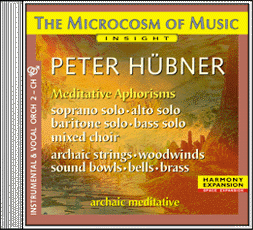Throughout all time, great scholars in the well-known high civilisations of the world have demanded that music reflect nature’s laws of harmony and educate mankind in naturalness.
During the every-day life of such high civilisations music strove towards complete natural harmony with the twittering of the birds, with the whispering of the waves, with the rustle of the leaves in the wind, with the course of the stars and with the development of the people – from earliest youth up to old age.
As man has become estranged from nature, so has his music become unnatural – indeed, mankind’s great thinkers claim that the loss of natural harmony in music is the cause of man’s estrangement from nature.
If in our present time of ecological crises, the natural knowledge about the harmony of life is obscured from man’s view, it should come as no surprise that the contemporary music industry is also predominantly striving towards the excitement of mental tension, superficial sensations and bodily feelings – whether it be avant-garde within the framework of intellectual composition techniques, or in the beat and pop scene, where the unfortunate children – in this, our age of ecological world destruction – are crying after the lost natural harmony of life and of music.
We must devote our undivided attention to this future generation’s desperate cry for natural harmony.
One can hear it and also make it even more audible.
This elemental internal life of a tone or sound can be most meaningfully described as the microcosm of music.”
We must concern ourselves intensively with the internal connections between nature and music – we should listen into the hidden world of sound of the natural microcosm of music and look there for the natural laws of harmony, with the help of which today’s music could be freed from its synthetic rhythmic fixation and its dissonance.
It is very well-known that, apart from the denial of food or of love, nothing affects our emotional life as powerfully as music does.
For precisely this reason we in the music field should strive towards that which the ecology movement is today striving for throughout the world in other areas too: we in the music industry must commit ourselves to the survival of nature.
Every tone or sound has, to some degree, a rich internal life. One can hear it and also make it even more audible.
constantly changing, and no single
pattern is ever repeated.”


